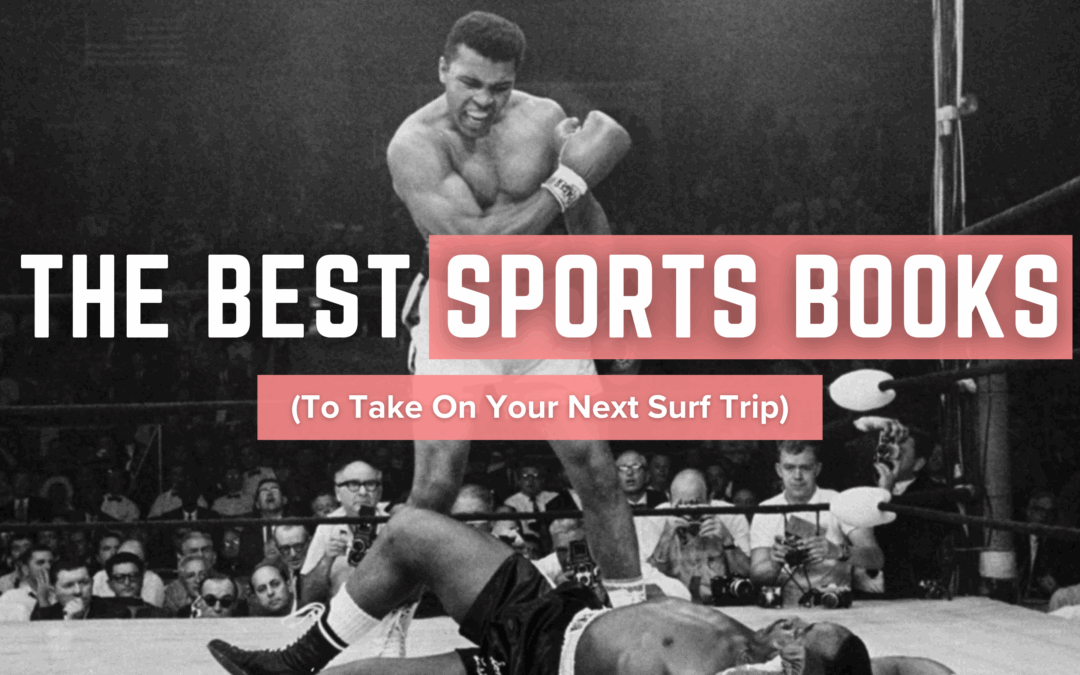We recently wrote about some of the best surf books to take away on your next surf trip. It had a mix of memoirs, novels, biographies, and science-based reads that centered on surfing. It’s a great list, no doubt, but if we zoom out just a little to include all sports books, the cultural tapestry becomes even richer. There are some stone-cold masterpieces below that tell harrowing, heroic tales of survival, feature the great Muhammad Ali, explore romantic comedies, divided Texan towns, and baseball statistics. Flat spell? You’ll be hoping for one with these genre classics.
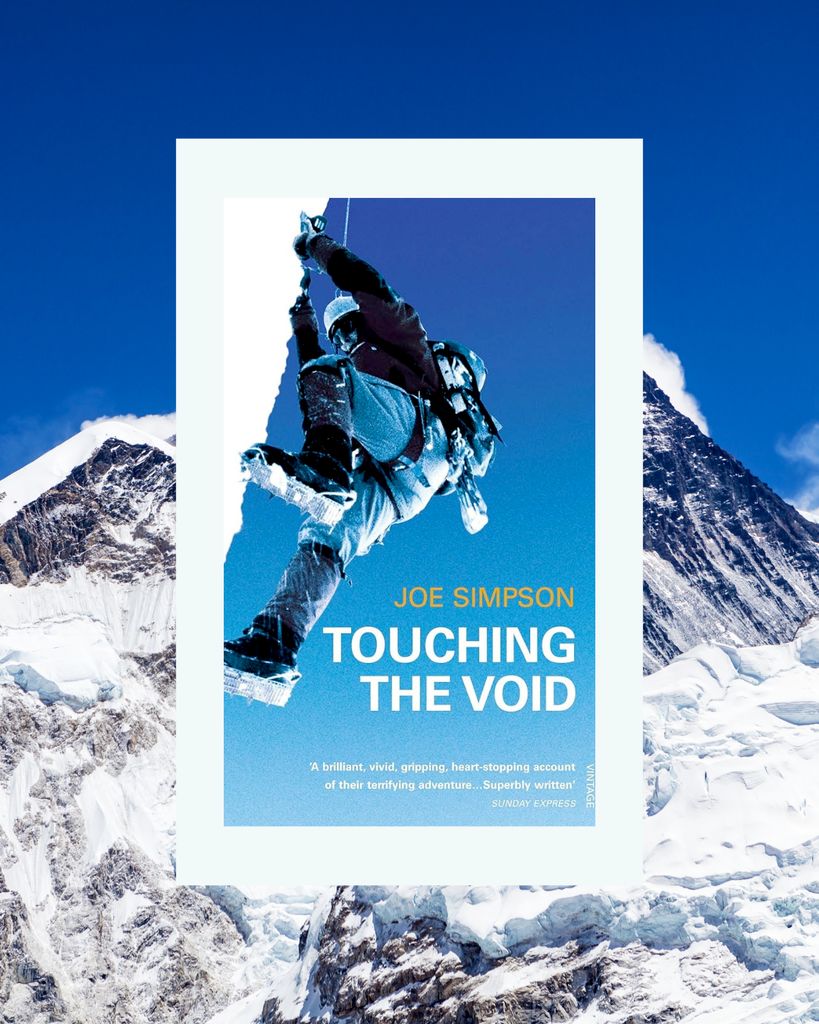
Touching The Void
by Joe Simpson (1988)
The book recounting Simon Yates’s climb of Siula Grande in Peru has transcended the sport of climbing and become one of the best-known survival tales in history. The key moment is when Simpson falls down a crevasse and hangs off one end of a rope. His partner Yates, attached at the top, has to decide to cut the rope to save his own life, knowing it would end his climbing partners. Miraculously, Simpson survives the fall but is left with a shattered leg and facing certain death. But (spoiler alert), through incredible will and courage, he manages to survive. The 2003 documentary of the same name further cemented Simpson’s survival in the wider consciousness. Still, it is the book that best tells the harrowing, white-knuckle tale of human endurance and the gut-wrenching dilemma that Yates faced.
Muhammad Ali: His Life and Times
by Thomas Hauser (1992)
Unsurprisingly, one of the most influential sportspersons has been the subject of some of the best sports books ever written. In His Life and Times, Thomas Hauser quotes not only Ali himself but also more than 200 people whose lives he had changed. The result was described “as a vivid and authentic picture of Ali’s life and significance, in a way that is at once comprehensive and magisterial.” Another classic is David Remnick’s King of the World. The esteemed New Yorker Editor tells the story of both Muhammad Ali and America in the 1960s, using classic reportage and historical context. Meanwhile, in The Fight, the great American writer Norman Mailer embeds himself deeply in Ali’s fight with George Foreman in Kinshasa, Zaire, in 1974. Such is the book’s brilliance; it has become almost as iconic as The Rumble in the Jungle itself.
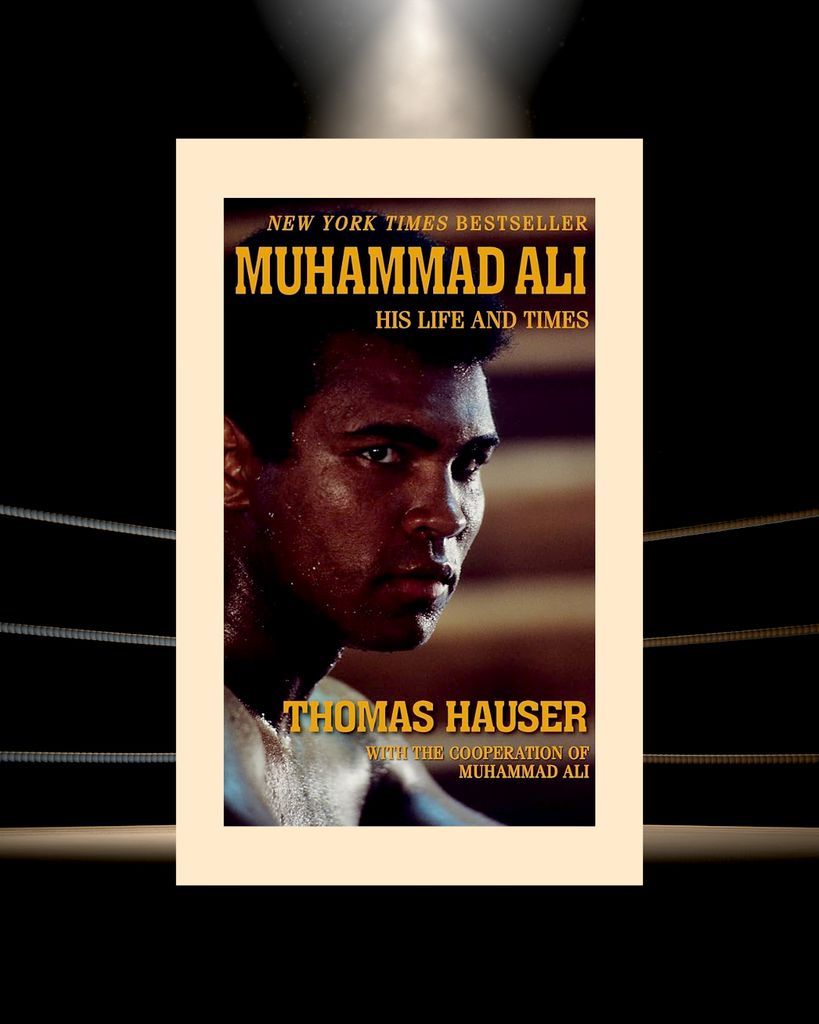
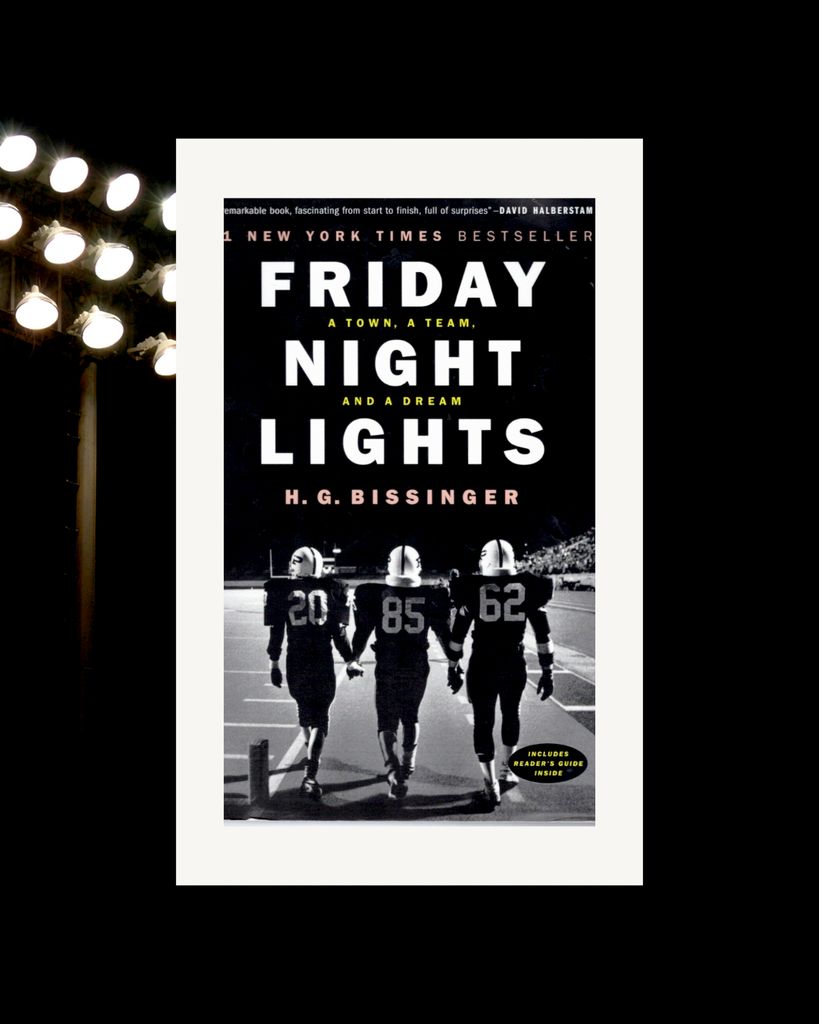
Friday Night Lights
by H.G. Bissinger (1990)
In 1988, H.G. “Buzz” Bissinger spent a season in Odessa, Texas, discovering what makes a town pin its hopes on a school football team. The result was Friday Night Lights, which has been called the best book about sport ever written. The frank and compassionate account showed how Odessa had become socially and racially divided as its faltering economy followed the boom-bust path of the oil business. In the middle is the winningest high school football team in Texas history, which becomes the town’s dream factory. The picture it paints is ultimately almost horrifying: one of fandom gone wrong. There was a movie and excellent TV series spin-off, but they can’t capture the book’s mix of insatiable highs and unfathomable lows that have made it a masterpiece.
Fever Pitch
by Nick Hornby (1992)
This is the tale of UK writer and screenwriter Nick Hornby’s lifelong obsession with football (aka soccer) and his team, Arsenal. While the book recounts Arsenal’s 1992 losing season, it is also part memoir, autobiography, romance, and comedy. It also analyses the madness and sacrifices that come with devoting a life to following a sports team. Few have captured the magic of fandom, its highs and lows, better than Hornby, and none have made it this funny. The coming-of-age aspect means this book resonates even with those not fans of the roundball game and is widely considered one of the most inventive classics of the genre.
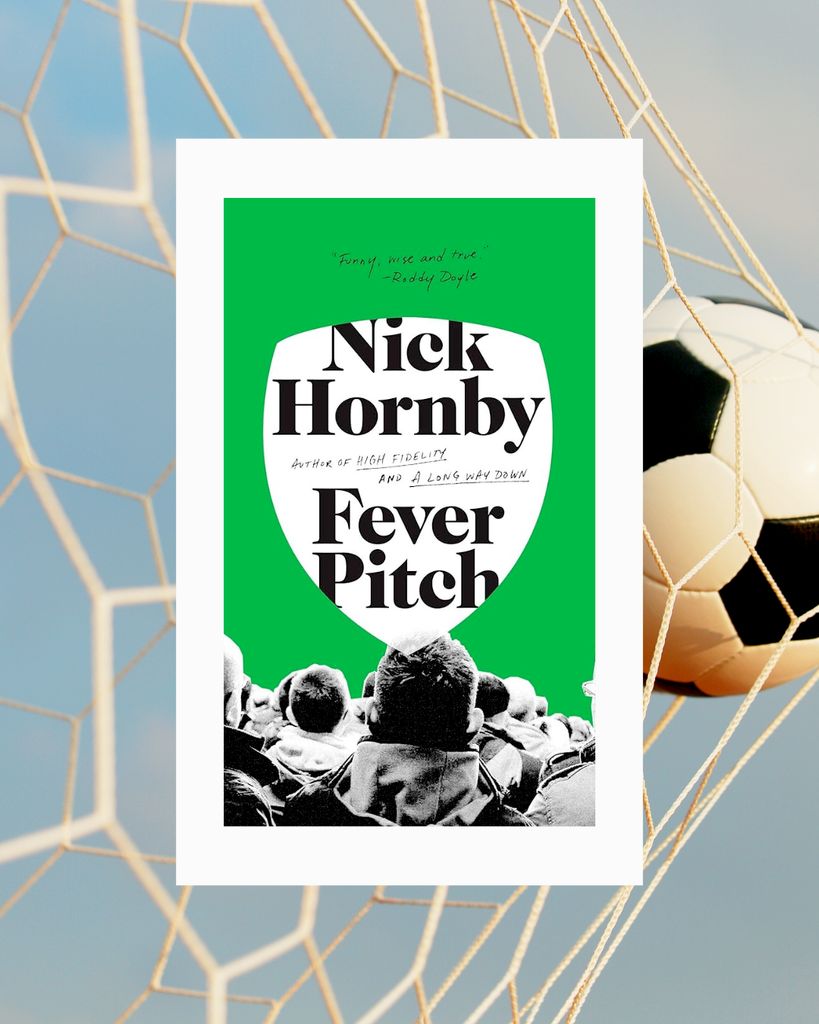
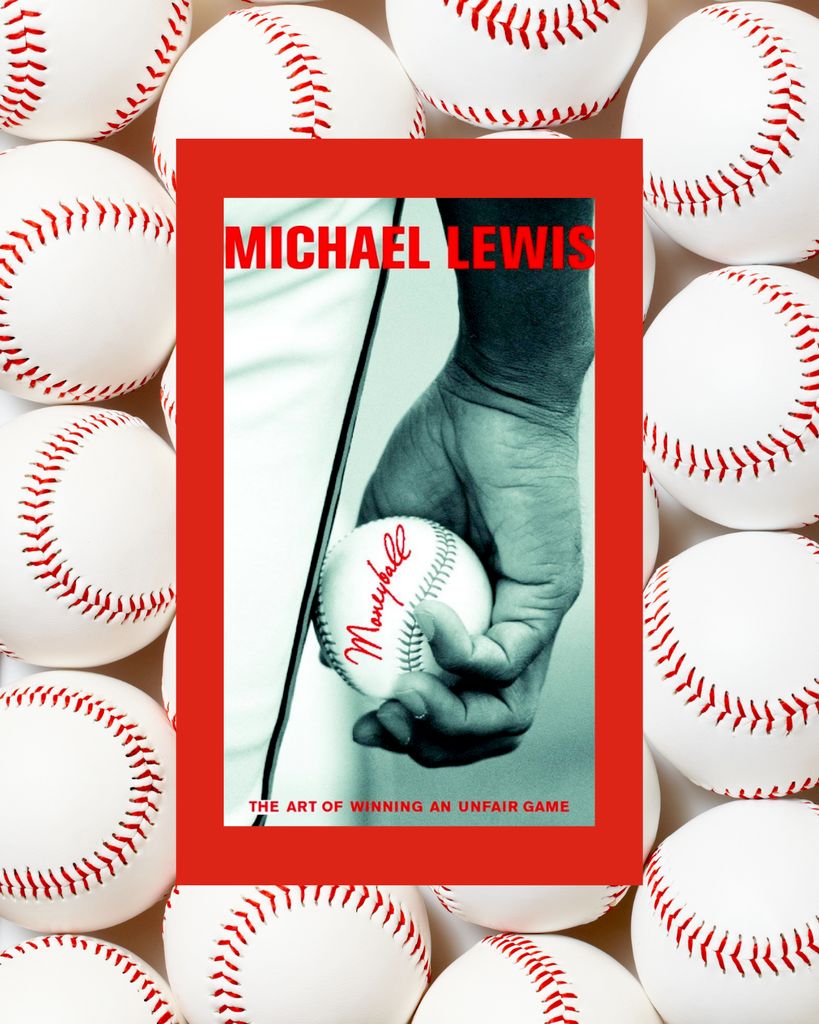
Moneyball: The Art of Winning an Unfair Game
by Michael Lewis (2003)
While you don’t have to love baseball to love Moneyball, it sure does help. One reviewer called it “a compulsively told true story about a rare sporting triumph for the nerds: and how the geeks and the freaks outsmarted the jocks.” Lewis had covered finance in his expert analysis of the 2008 banking crisis in his earlier, excellent book, The Big Short. In Moneyball, he turned his forensic research skills and eye for personality to the Oakland Athletics. He traces how, through player recruitment based on a new way of analyzing baseball statistics, the perennial underachievers won the sport’s biggest prize. Now, statistics might not be sexy or thrilling, but the audacity of the approach and the intricate storytelling make this a ball-tearing, page-turning belter of a book. And Brad Pitt playing Oakland A’s General Manager Billy Beane in the successful 2011 movie sure didn’t hurt cementing it as a classic.
